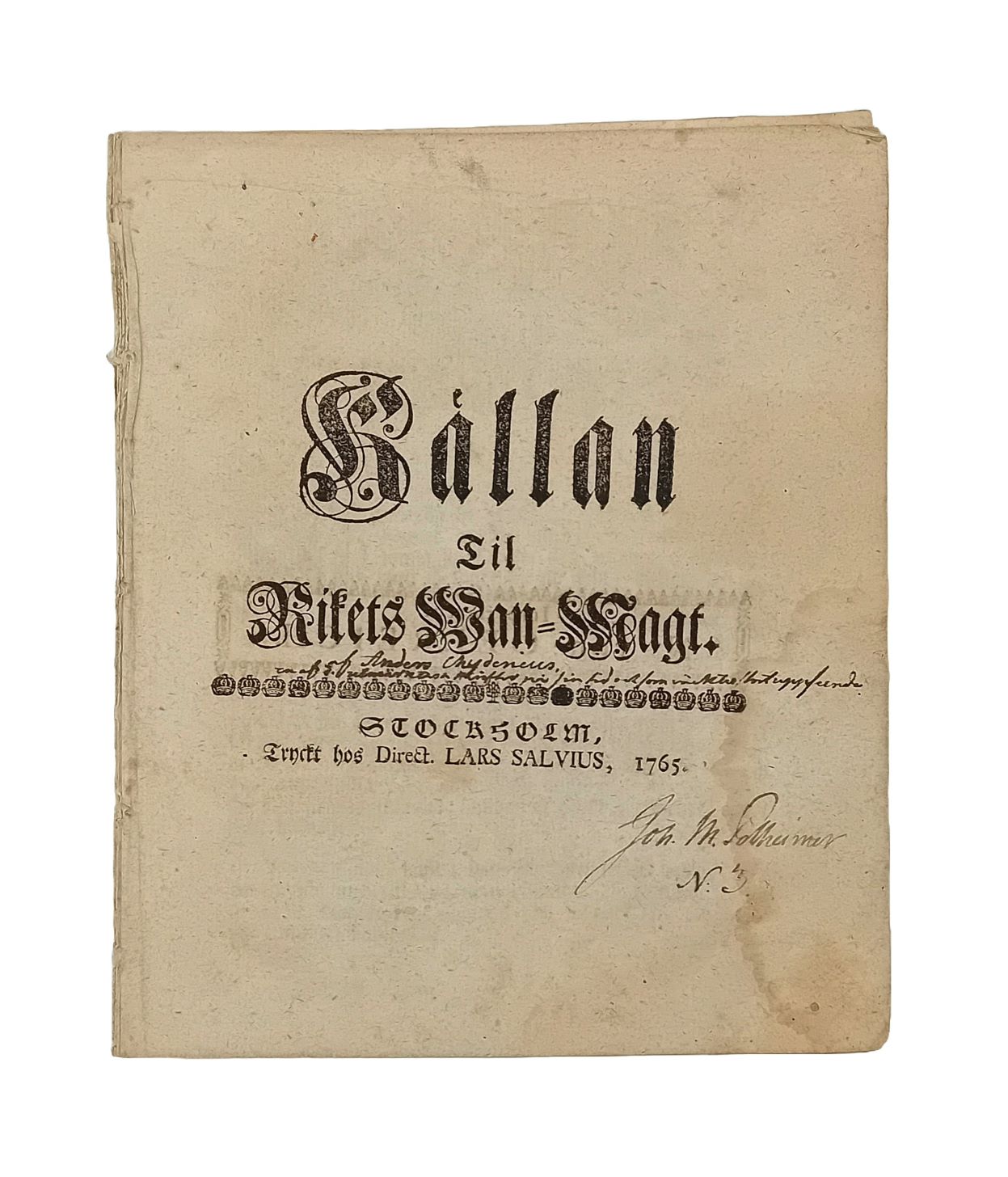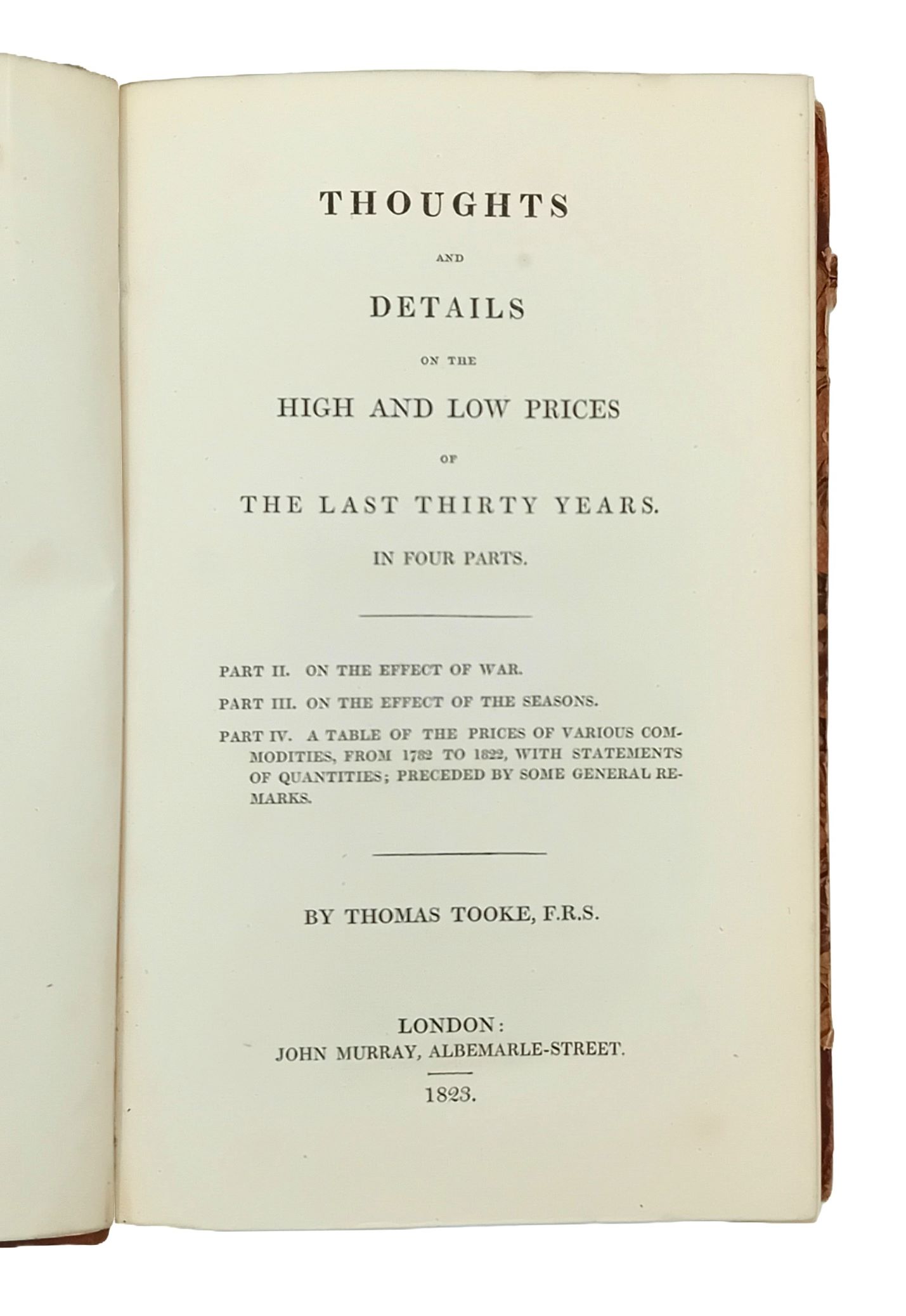[CAMPOMANES, Pedro Rodriguez, Conde de].
Discurso sobre el Fomento de la Industria popular. De orden de S. M. [Carlos III] y del Consejo.
Madrid, D. Antonio de Sancha, 1774.
Small 8vo, pp. [8], cxcviii; ownership inscription of 1808 to title-page; modern bookplates to front pastedown and free endpaper recto; tears to i1–2 affecting seven words (with the loss of one or two letters); occasional light spotting and waterstaining, but a good copy in contemporary vellum with remains of the original ties, faded ink lettering to spine.
Added to your basket:
Discurso sobre el Fomento de la Industria popular. De orden de S. M. [Carlos III] y del Consejo.
First edition; preceding the complementary Discurso sobre la educación popular de los artesanos y su fomenta (1775); Dutch and Italian editions appeared in 1780 and 1787. Campomanes (1723–1802) was, according to McCulloch, ‘one of the most intelligent and distinguished Spanish statesmen of [the eighteenth] century. He published the two discourses … by direction of the Council of Castile, of which he was the fiscal advocate, or attorney-general, previously to his being made minister of state. They are intended to show the dignity and importance of arts and manufactures; the patronage to which they are entitled; the drawbacks under which they laboured in Spain from corporation privileges and vicious taxes and regulations; and the many advantages that would result from the systematic and judicious training of those engaged in them’ (Literature, p. 361).
Campomanes advocated the establishment of a series of agricultural societies known as Sociedades Económicas de Amigos del Pais, as an effective instrument for fostering economic development. The Discurso promoted this policy, and thirty thousand copies were distributed to mayors, intendants, and bishops. ‘In the wake of the publication of this document the Council of Castile received a number of petitions from towns and villages throughout the region who wished to set up their own Economic Societies’ (Harrison, Economic History of modern Spain, p. 10).
Schumpeter notes McCulloch’s ‘fervent eulogy’ of Campomanes, and in assessing his place in the history of economic theory, describes him, with Jovellanos, as ‘a jurist-economist of the continental type’ whose importance was as a practical reformer. ‘But they understood the economic process better than did many a theorist. And, in view of the date of [the] Discurso … it is not without interest to observe how little, if anything, he stood to learn from the Wealth of Nations’ (History of Economic Analysis, pp. 172–3; cf. Grice-Hutcheson, Economic Thought in Spain: Select Essays, 1993, p. 45, deeming Schumpeter’s estimate of Campomanes’s theoretical interest to be a little too low).
Einaudi 821; Goldsmiths’ 11127; Higgs 5957; Kress 6998; McCulloch, p. 361f; Palau 263681.

